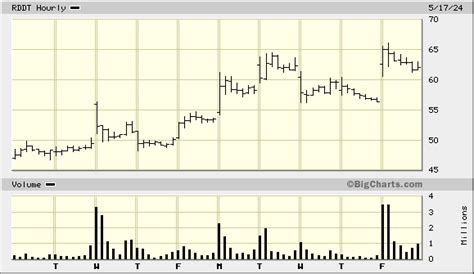Decoding the Dow Jones: A Comprehensive Guide

`markdown
The Dow Jones Industrial Average (Dow Jones) is one of the most watched and influential stock market indices in the world. But what exactly is it, and why does it matter? This comprehensive guide will break down the Dow Jones, exploring its history, how it's calculated, the companies it tracks, and its impact on the global economy. Understanding the Dow Jones can provide valuable insights into the health of the stock market and help you make more informed investment decisions.
What is the Dow Jones Industrial Average (DJIA)?
The Dow Jones Industrial Average (Dow Jones) is a price-weighted index that tracks the performance of 30 large, publicly owned companies trading on the New York Stock Exchange (NYSE) and the NASDAQ. Often referred to simply as "the Dow," it serves as a barometer of the U.S. economy and the overall stock market. While not as comprehensive as indices like the S&P 500, the Dow Jones remains a widely cited benchmark due to its long history and simple calculation.
A Brief History of the Dow Jones
The Dow Jones was created by Charles Dow and Edward Jones, founders of The Wall Street Journal, in 1896. Initially, it consisted of only 12 companies, primarily industrial firms. Over the years, the composition of the Dow Jones has evolved to reflect changes in the U.S. economy. Companies are added and removed based on factors such as their financial health, industry representation, and overall importance to the market.
How is the Dow Jones Calculated?
Unlike market capitalization-weighted indices, the Dow Jones is price-weighted. This means that companies with higher stock prices have a greater influence on the index's value. The Dow Jones divisor, currently adjusted to account for stock splits and other corporate actions, is used in the calculation.
Formula:
Dow Jones = Sum of Stock Prices of 30 Companies / Dow Divisor
It's important to note that this method has its critics, as a high-priced stock with a relatively small market capitalization can disproportionately impact the index.
Components of the Dow Jones
The 30 companies that make up the Dow Jones represent a diverse range of industries, from technology and finance to healthcare and consumer goods. Here are a few examples of companies currently included in the Dow Jones:
- Apple (AAPL)
- Microsoft (MSFT)
- Goldman Sachs (GS)
- McDonald's (MCD)
- Nike (NKE)
- Caterpillar (CAT)
- Market Sentiment: It provides a quick and easy way to gauge the overall mood of the stock market.
- Economic Health: The performance of the Dow Jones can reflect the health of various industries and the broader economy.
- Investor Confidence: A rising Dow Jones generally indicates increased investor confidence, while a declining Dow Jones may signal concerns about the economic outlook.
- Benchmarking: While not the most comprehensive, it serves as a benchmark for investment performance.
- Interest Rate Impact: Rising interest rates from the Federal Reserve often put downward pressure on the Dow Jones, as borrowing costs increase for companies.
- Inflation Concerns: Persistently high inflation can erode corporate profits and lead to market volatility, affecting the Dow Jones.
- Geopolitical Risks: Global events, such as wars or trade disputes, can create uncertainty and negatively impact the Dow Jones.
- Technological Advancements: Innovation and technological disruptions constantly reshape industries, leading to shifts within the Dow Jones.
- Earnings Season: Quarterly earnings reports from companies within the Dow Jones significantly influence its performance. Strong earnings can drive the Dow Jones higher, while weak earnings can lead to declines.
- Mutual Funds: Some mutual funds invest primarily in companies within the Dow Jones.
- Individual Stocks: You can invest in the individual companies that comprise the Dow Jones.
- The Dow Jones is a price-weighted index of 30 large, publicly owned companies.
- Created by Charles Dow and Edward Jones, it's a historical measure of the U.S. economy.
- The DJIA is significant for market sentiment, reflecting economic health, and investor confidence.
- Stay updated on the Dow Jones via trends influenced by interest rates, inflation, and global events.
- You can't directly invest in the Dow Jones, but ETFs and mutual funds offer exposure.
The composition of the Dow Jones is reviewed periodically by S&P Dow Jones Indices and can be adjusted to ensure it accurately reflects the leading companies in the U.S. economy. Changes in the composition of the Dow Jones are always newsworthy, as inclusion or exclusion can significantly impact a company's stock price.
Significance of the Dow Jones
The Dow Jones is a significant indicator of the U.S. economy for several reasons:
Dow Jones: Trends and Analysis
Staying abreast of current trends related to the Dow Jones is crucial for informed decision-making. Recent trends might include:
Investing in the Dow Jones
While you cannot directly invest in the Dow Jones index, you can gain exposure through various investment vehicles:
Exchange-Traded Funds (ETFs): DIA* is the most popular ETF that tracks the Dow Jones. These ETFs aim to replicate the performance of the index.
Before investing, it's crucial to understand your risk tolerance and investment goals.
Dow Jones: A Global Perspective
The Dow Jones is not only important to the U.S. economy but also has a global impact. Its movements can influence stock markets worldwide, particularly during times of economic uncertainty or crisis. Many global investors monitor the Dow Jones as an indicator of global economic health.
Key Takeaways About The Dow Jones
FAQ About the Dow Jones
Q: What does it mean when the Dow Jones is up or down?
A: A rising Dow Jones generally indicates positive market sentiment and potential economic growth. A falling Dow Jones suggests negative sentiment and potential economic concerns.
Q: How often is the composition of the Dow Jones updated?
A: The composition of the Dow Jones is reviewed periodically by S&P Dow Jones Indices, but there is no fixed schedule. Changes are made when necessary to ensure the index accurately reflects the leading companies in the U.S. economy.
Q: Is the Dow Jones the best indicator of the stock market's health?
A: While widely followed, the Dow Jones is not the most comprehensive indicator. The S&P 500, which tracks 500 companies, is often considered a more accurate representation of the overall stock market.
Q: How does the Dow Jones affect my personal investments?
A: The Dow Jones can influence the value of your investments, particularly if you hold stocks in companies within the index or invest in ETFs or mutual funds that track the Dow Jones. Understanding its movements can help you make more informed investment decisions.





